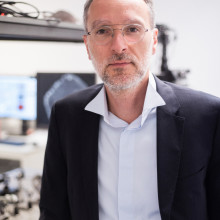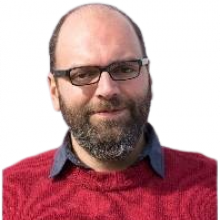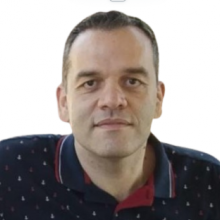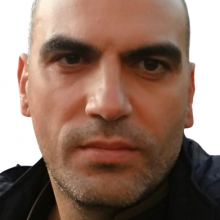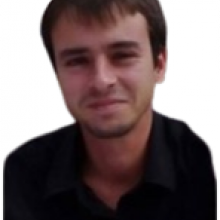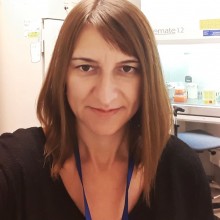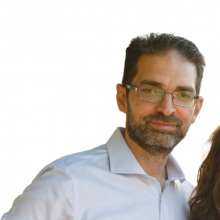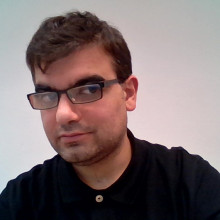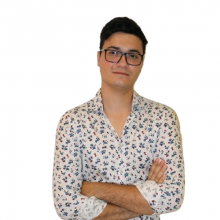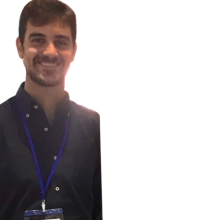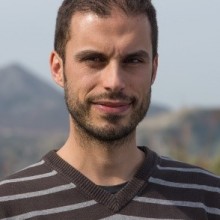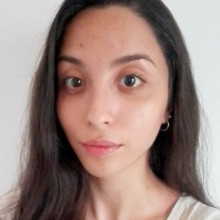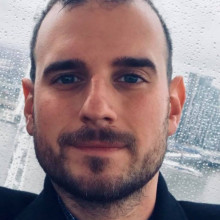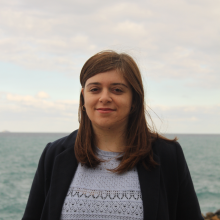The Biophotonics Group is focused at developing key enabling technologies for microscopic, mesoscopic and macroscopic imaging and tissue engineering and their application for biological and medical studies
Laboratory for Biophotonics and Molecular Imaging (LBMI )
The objective of the Laboratory for Biophotonics and Molecular Imaging concern the design, development and application of key enabling photonic technologies for imaging in biological targets and living systems. The activity functions at the interface of Physics, Engineering, Mathematics, Biology, Medicine and Computer Science, joining expertise from: the imaging technology development field in all scales from and beyond microscopy, mesoscopy and macroscopy; the theory; the computational modelling; and the biology, biomedicine, biotechnology and theranostics. Such an activity can focus on the study of biological processes and diseases from the subcellular level to the whole organism level, as well as fundamental mechanisms in Physics, Biology and Medicine by both applied and basic research on novel photonics devices and concepts and new theory development for advancing our knowledge on fundamental light-biological-tissue interactions and our understanding of biological processes and diseases.
Tissue Engineering – Regenerative Medicine and Immunoengineering Lab (TERMIM Lab)
The objective of the TERMIM lab is the study of the basic biological and biophysical processes at the molecular and cellular level, the understanding of the physicochemical mechanisms that take place at the interface between cells and biomaterials in micro / nano scale and the examination of the potential medical and/or clinical applications of optimized artificial tissue scaffolds. TERMIM Lab’s research is focused on a) the study of the effect of surface properties in the cell adhesion, proliferation and differentiation under the prism of mechanosensing, b) the development of tunable cell delivery platforms which are strong candidates for diagnostic and/or therapeutic implants, c) the potential use of nanoparticles as promising therapeutic and diagnostic tools (nanomedicine) and d) the development of multiple and flexible screening tools for the evaluation of the immunomodulatory potential and immunocompatibility of biomaterials and scaffolds.
Non-linear microscopy lab (NLM Lab)
The objective of the Non-linear Microscopy lab (NLM) is the in vivo elucidation of molecular mechanisms and biological processes by employing various spectroscopic techniques with emphasis on advanced microscopic modalities. Our scientific target is the employment of non-linear (MPEF, SHG, THG) imaging modalities for elucidating structural and anatomical changes of various biological samples and for probing functions and developmental processes in vivo at the microscopic level. Development and optimization of prototype, state of the art workstations that combine various imaging and spectroscopic techniques and nanosurgery capabilities in a single instrument comprise another aim of our scientific team. The implementation of non-linear image contrast modalities as novel diagnostic tools for Cultural Heritage studies has been also demonstrated by our lab.
Research Topics
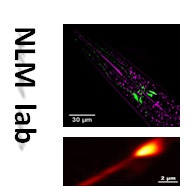
Our main research interest concerns the investigation of in vivo cellular and sub-cellular activities, by means of non invasive advanced spectroscopic techniques. This approach can provide valuable information related to fundamental biological problems, leading to the development of innovative methodologies for the early diagnosis and treatment of several diseases. A prototype workstation that combines non-linear imaging modalities and nanosurgery capabilities in a single instrument has been developed. Non-linear (Multi Photon Excitation Fluorescence (MPEF), Second Harmonic Generation (SHG), Third Harmonic Generation (THG)) imaging modalities were implemented for the in vivo detailed imaging of structures and functions of various biological specimens. These techniques are not limited to visualization since they also permit precise quantitative analysis and testing of specific mechanisms and processes. The in vivo sub-cellular investigation of complex biological activities (embryogenesis, neuronal degeneration, aging, cell activation and differentiation) and the extraction of valuable structural and morphological information from various samples (cancer cell lines, mouse embryos, C. elegans, BV-2 microglia cells, T cells, cancer tissue) have been achieved.
Additionally, these non-linear image contrast modalities have been successfully employed as novel diagnostic tools for Cultural Heritage (CH) studies. These high resolution techniques have the potential to provide new insights and information for the exact thickness determination and composition identification as a function of depth of different multi layer CH objects.
The objective of the Laboratory for Biophotonics and Molecular Imaging concern the design, development and application of key enabling photonic technologies for imaging in biological targets and living systems. The activity functions at the interface of Physics, Engineering, Mathematics, Biology, Medicine and Computer Science, joining expertise from: the imaging technology development field in all scales from and beyond microscopy, mesoscopy and macroscopy; the theory; the computational modelling; and the biology, biomedicine, biotechnology and theranostics. Such an activity can focus on the study of biological processes and diseases from the subcellular level to the whole organism level, as well as fundamental mechanisms in Physics, Biology and Medicine by both applied and basic research on novel photonics devices and concepts and new theory development for advancing our knowledge on fundamental light-biological-tissue interactions and our understanding of biological processes and diseases.
TERMIM Lab research is focused on the implementation of micro- and nano-fabricated 3D scaffolds for regenerative medicine applications. The main goal of the group is to elucidate the influence of the topographical features of micro/nano multifunctional scaffolds on cell behaviour, namely the viability, proliferation, motility, adhesion, morphology, cytoskeletal arrangement and gene expression. Additionally, our work also aims to explore the utilization of advanced nanoparticles as drug delivery carriers. In this context our research topics include:
a) Exploring the effect of substrate’s surface energy (chemistry, topography and mechanical properties) on cell responses.
b) Developing multifunctional scaffolds for potential lab-on-a-chip applications and therapeutic implants.
c) Elucidating the effect of nanoparticles’ properties on cellular uptake and intracellular trafficking for drug delivery application.







